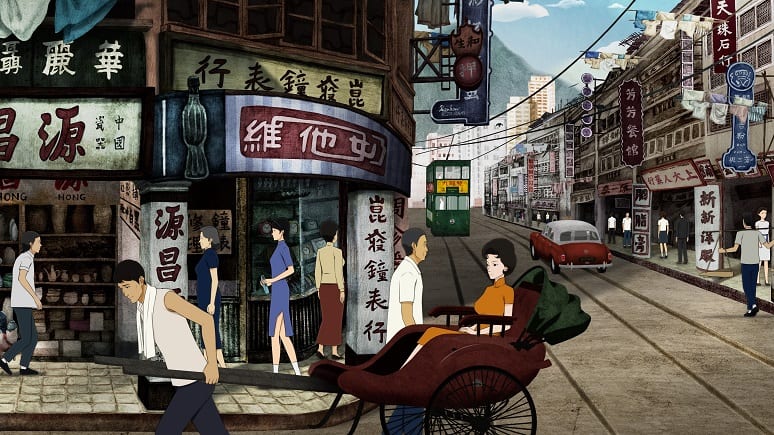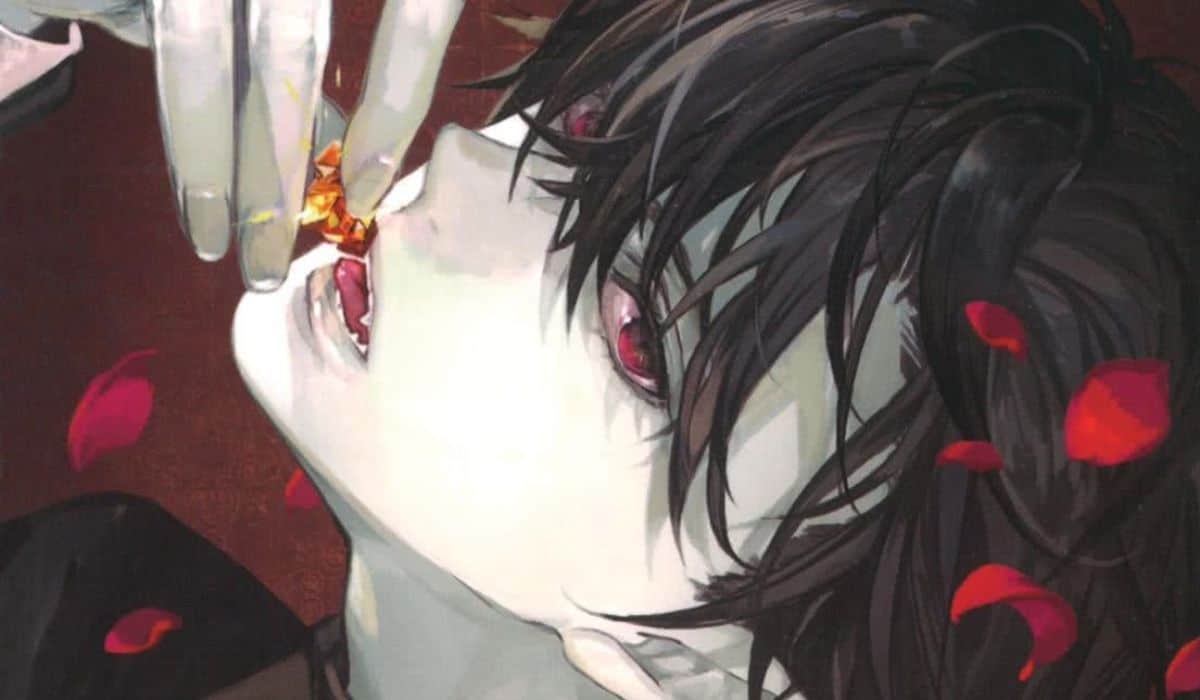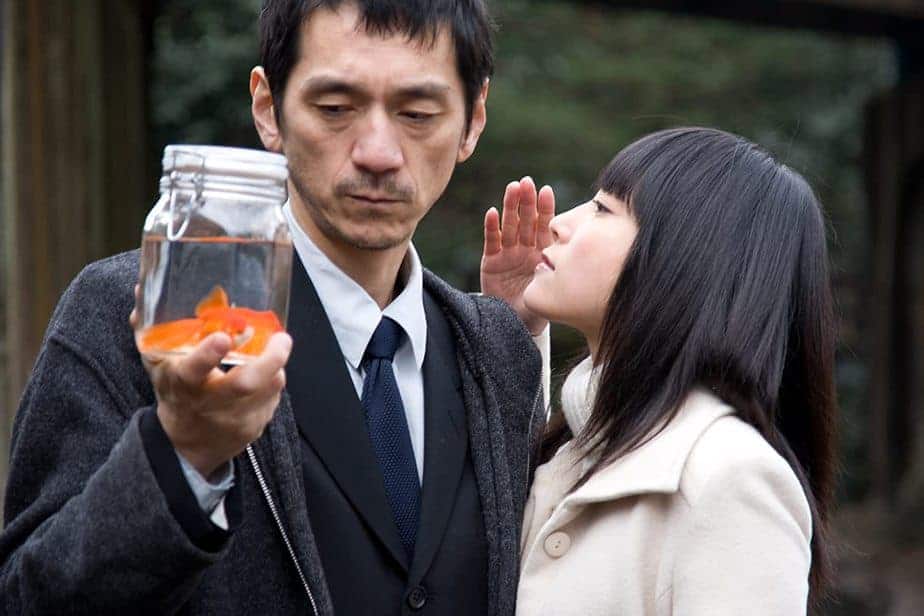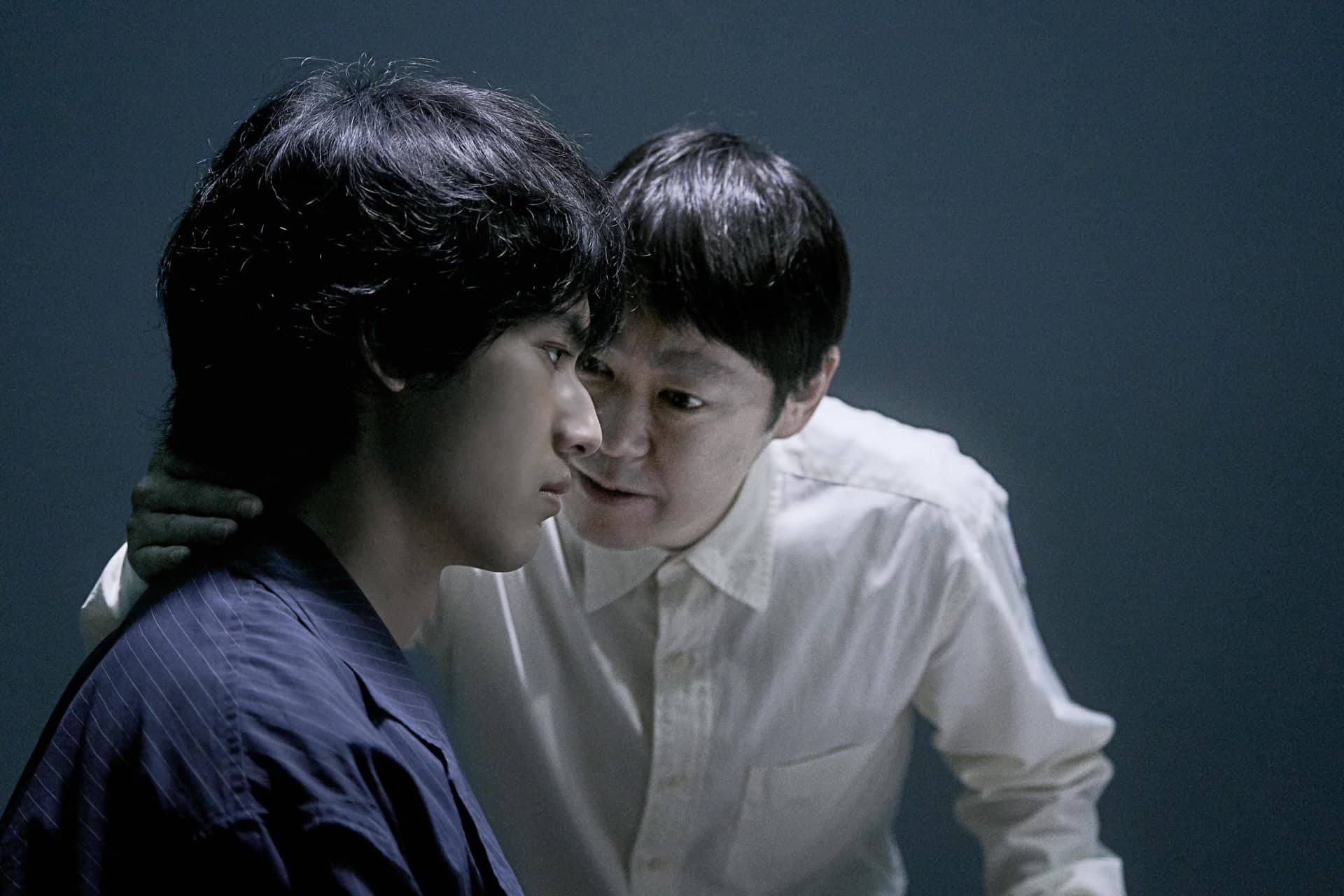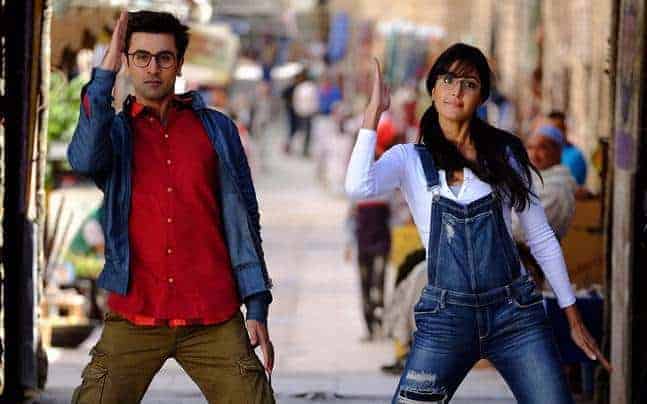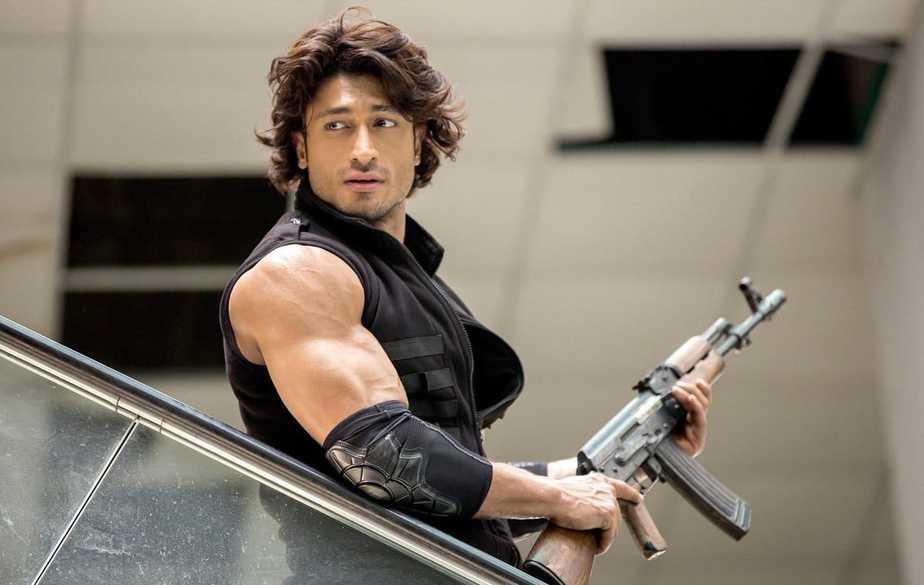An erotic pipe dream, a nostalgic nodding to a bygone era, a love triangle against the backdrop of politically turbulent times, a hyper-aesthetic foray into adult animation… there's no easy way to sum up “No 7 Cherry Lane.” Veteran Hong Kong filmmaker Yonfan returns from his semi-retirement to feature filmmaking after a decade with a venture he has never handled before, an animation. Though you won't find any sign of debutante's restraint or insecurity. He perfectly knows what tools he needs and how to utilize them to achieve the desired effect.
“No.7 Cherry Lane” Screened at Five Flavours Asian Film Festival
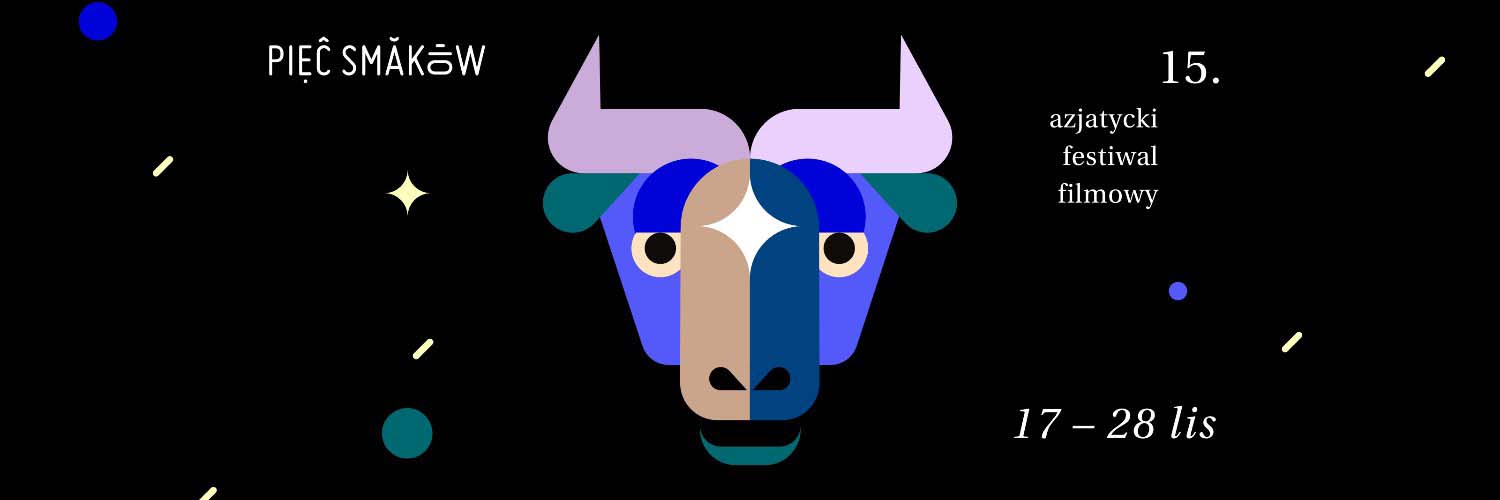
Yonfan blends animations styles and techniques with ease, meticulously crafting each frame. The production process involved the conversion of 3D models of characters into 2D hand drawings and panting backgrounds on rice paper. Esthetical tropes range from art deco, Japanese animation, woodcut printing, scroll paintings to pencil sketches, and more. The effect sometimes may seem overwhelming, with lavish color designs painted with an intensely saturated palette, and obsessive attention to detail, but there is a method to this madness and the result is breathtaking. It charms with perfect composition and visual appeal as well as lovely trifles like the movement of leaves and shadows or the texture of a yellow scarf floating in the air.
The story set in the late 1960s revolves around Ziming, a university student, commissioned to tutor Meiling, the 18-year-old daughter of Mrs. Yu, a mature 40-year-old-entrepreneur. Mrs. Yu is a liberated and attractive woman, not a motherly type. Waiting for the return of Meiling late for her first lesson, she engages in a conversation with a visitor. Unexpectedly, the duo makes a connection over literature, discussing Proust (Ziming is a foreign literature student) among others. Their chat's nature, however, isn't solely intellectual, infused by growing physical attraction reflected also in conversation points (like Mrs. Yu's fascination with a particular passage from “Dream of the Red Chamber”). Meiling, who is no longer a child, but a young female with raising awareness of her own womanhood, will be the last angle of this puzzling and strained network of relations. Considering the political backdrop of the movie, anti-colonial and pro-Mao protests from 1967's Hong Kong history, the trio can be perceived as a symbolic representation of affiliations between the past, present and the future. Though the political context never grows strong in the movie. We just glimpse ongoing protests or students handling the leaflets as inert passer-by.
The director often abruptly abandons the narrative, for the sake of a sophisticated intellectual and inter-textual essay. He intertwines numerous cinema and literary references, appealing to the viewer's arts-savvy, aptly juggling with quotations and allusions. They range from an opening sequence of a pretended tennis match played with an invisible ball reminding of Antonioni's “Blow-up”, echoes of Mike Nichols' “The Graduate” and Wong Kar Wai, to excerpts from “Jane Eyre” or abovementioned “Dream of the Red Chamber” (regarded one of Chinese literature's four great classical novels) to re-imagined and re-enacted sequences from Simone Signoret's repertoire (whose movies Ziming and Mrs. Yu are watching together, in a quirky context to their mutual attachment). A male voiceover, being a kind of third-person omniscient narrator, is heard from time to time, cementing the literary interconnections. The narrator's comments satiate the movie with a poetic reverie.
Ziming is seeing both the mother and the daughter, and the nature of their emotional entanglement is never fully disclosed. Yonfan doesn't build a complex psychological study or analyze its implications (like he is uninterested in making a political statement). He observes the nature of desire. Starting with the voyeuristic scene of Ziming taking a shower being watched by a peeper, through cringe infatuation of an eccentric former opera star (Mrs. Yu's neighbor), to giving insight into the dense lubricious fantasies of Mrs. Yu, the director guides viewers through sensual experiences, letting them immerse into the world of craving and yearning. The sequences of two erotic fantasies stun with visionary magnitude, filled with imaginative and uncanny transformations, the fiery desire, or suggestive and widely recognized symbols like snakes. And believe me, you will not forget the cat…
Background music intertwines with images, providing pacing and the changes of emotional temperature. The vision sometimes just flows with the melody's current, enhancing the immersive experience. The recreation of old, narrow historical lanes of Hong Kong, streets decorated with blooming red cotton trees, the soothing view of the harbor, combined with the excitement of the 60s, its cultural and sexual revolution, saturates the movie's nostalgia with alluring charm. Do visit “Cherry Lane”, as it is a wonderful feast for the senses.
PS Watch out for the voice-over cast, featuring the all-star ensemble of Sylvia Chang, Alex Lam, Zhao Wei, and directors Ann Hui, Tian Zhuangzhuang, and Fruit Chan.


